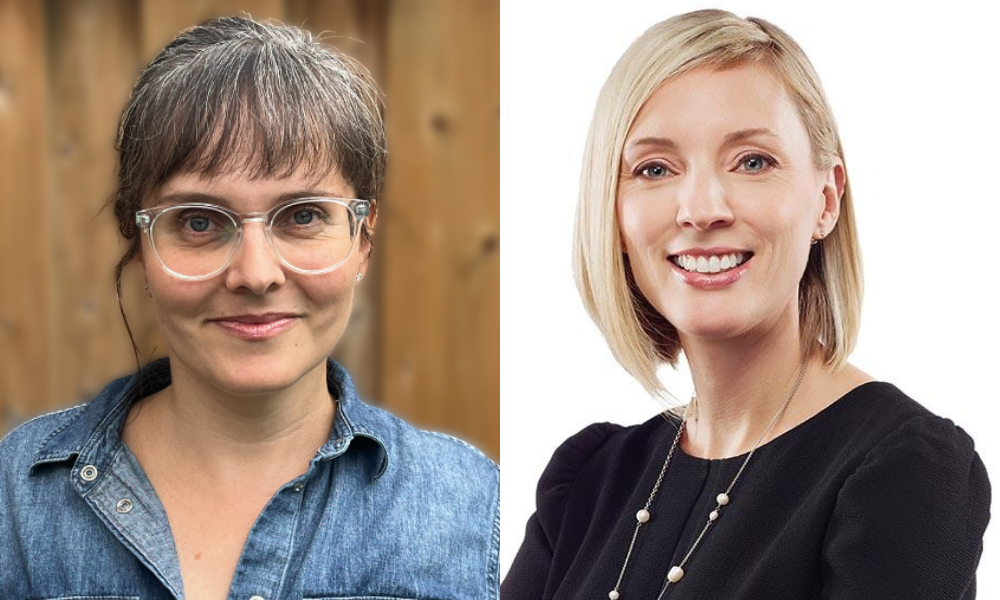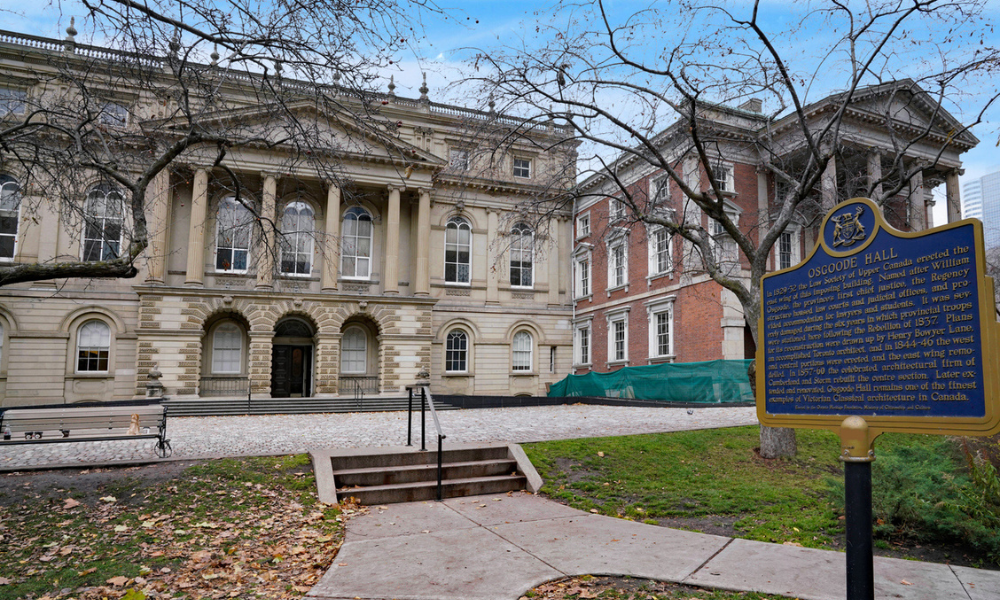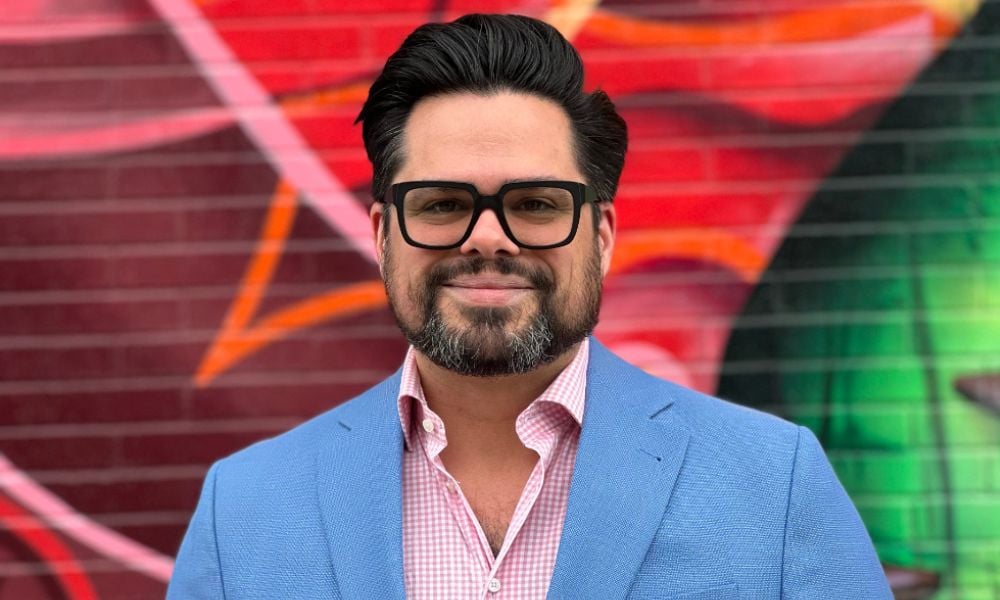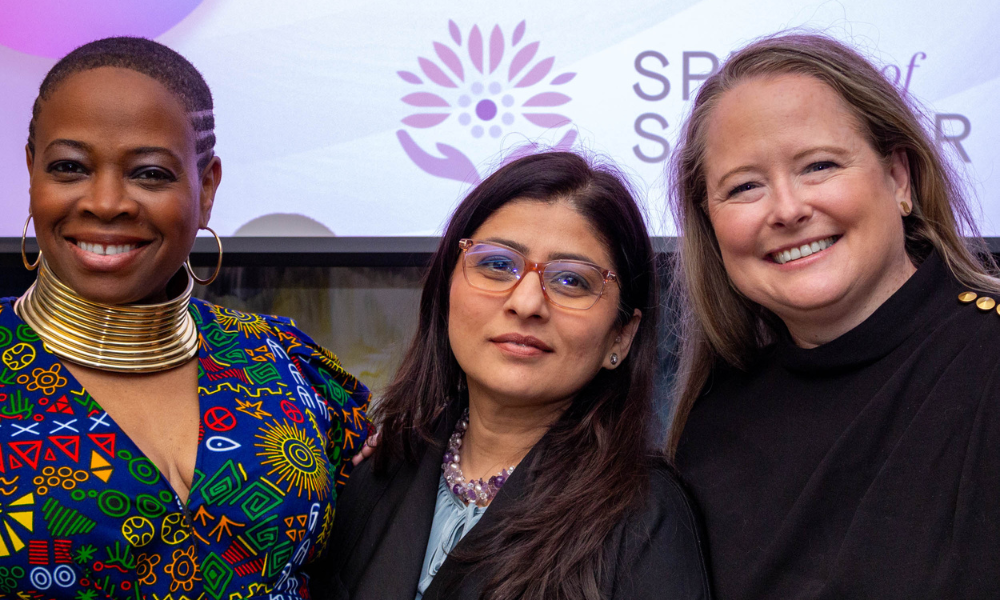Pro Bono Ontario and National Self-Represented Litigants Project study suggests 'gateway' approach

It is the kind of statement that nobody wants to hear, but everybody needs to listen to, especially during Access to Justice Week.
“We will not be able to get everybody full-service, full legal representation for all of their legal needs,” said Jennifer Leitch, executive director of the National Self-Represented Litigants Project (NSRLP) during a webinar held on the first day of Access to Justice Week.
Leith was one of the presenters of a webinar entitled “Making the Legal Services Delivery System Work for Ontarians: Research Findings.” While that message may be a bit disheartening, she acknowledged that the situation isn’t as bad as it sounds.
“Not everybody needs a lawyer, but everybody needs some form of legal information, advice and direction. And in most cases, they need some form of live communication where they can interact with an expert who can advise and guide them.”
That goal – finding efficient and effective ways to get people legal advice and guidance –brought Leitch together with Pro Bono Ontario’s (PBO) deputy director, Yonit Fuhrmann and its vice-chair of the board, Deborah Templer.
The two organizations recently commissioned a study, which is scheduled to be officially released in mid-November, about how legal services are delivered across Ontario. The survey reached out to people who received support from NSRLP or called PBO’s hotline for assistance – last year, the hotline handled 30,000 calls. It also included input from 15 clinics and agencies that provide frontline legal services.
The findings of the report come down to five basic conclusions:
- The legal system is fragmented, which makes it hard for Ontarians to find and obtain legal advice. People would prefer to have a front-end service that funnels them towards the help they need.
- Increased service integration would help people find the types of service and service levels they need.
- Point three is the source of Leitch’s message: not everyone needs a lawyer, but everyone needs some form of legal information, advice and direction, and in most cases, some form of “live” communication.
- Ontarians want consistency from their legal service providers, especially when dealing with complex legal issues. Essentially, this means they don’t want to repeat their stories repeatedly to different legal advisors and intake specialists.
- Referral mechanisms between legal service providers for individuals with legal problems are not highly developed, but there is receptiveness to improving systems.
When the study talks about Ontarians, it does mean the entire population. According to Leitch, the people who turn to NSRLP are educated (40 percent have a university degree, 27 percent have a college degree, and only four percent do not have a high school diploma) and have a wide disparity of incomes (with 62 percent making $50,000 or less, 14 percent earning between $50,000 and $75,000 and 20 percent making over $75,000).
“The legal needs in this province are growing. Ontarians have had an especially difficult few years, first with the pandemic, of course, but now with inflation, with the rising cost of living and the housing crisis,” said Templer.
Templer said PBO is looking at a gateway service delivery model to address that need. It’s an approach she feels will help “close the gap on achieving our goal of 100 percent access to justice.”
The gateway model would bring together different agencies and services and triage clients, directing them to the most appropriate types of service or support, no matter where they are located and no matter what kind of service they need: full representation, bundled services, documents and support for self-represented cases, legal-aid support, or some combination of the above.
“What really needs to happen is we need to stop considering geographically mandated areas of law coverage; we should all be focusing on what our core strengths are. Everybody should be on the same page about intake and referral because people will need to go to different agencies for different kinds of problems,” said Fuhrmann.
To make a legal services gateway work, agencies and services must rely more heavily on technology to provide people with access to the services and assist lawyers.
After the webinar, Fuhrmann and Templer spoke with Law Times about the report and the steps Pro Bono Ontario is taking to respond to the findings. One of those efforts involves updating PBO’s hotline and making it better ready to be integrated into a broader gateway.
“One of the things we talked about in that presentation was the fact that we really want to modernize our hotline and look at AI and other tech solutions. That work is already underway,” said Fuhrmann, noting that PBO is looking beyond a simple interface upgrade.
“We are starting to reach out to some potential partners to see if we can look at some kind of proof-of-concept pilot project, illustrate some of the [gateway] concepts, maybe even help define what the best practices would be.”
Fuhrmann says PBO hopes to have the pilot project up and running by the end of 2024 and the hotline upgrade completed before that.
Of course, a state-of-the-art phone answering system doesn’t do much good without experts on the end of the line and Templer, who volunteers herself, says she is always looking for more recruits.
“You can do four hours a month. You could do four hours a year. The shifts are now four hours. You can do as many shifts as you want. It’s the highlight of my week or month. Sometimes, I can get as many as 13 or 14 clients in a shift. And I often walk away from those shifts thinking I meaningfully impacted the lives of a certain number of callers who had real issues and real stressors in their lives, and I was able to help them in 30 minutes. It’s just a remarkable feeling.”
She mentions that there’s a perception that the hotline only needs civil litigators, but that’s not true. “It can be very helpful to have solicitors volunteering as well.”
In terms of the bigger picture, however, what Templer says will be truly helpful is to have feedback regarding the report and the gateway model.
“We didn’t invent this gateway process or model from whole cloth. There was a commitment to creating a wide front door to access to justice and everyone working together. For that goal, if we could immediately work on just getting consensus [about the model], that is the logical next step.”









